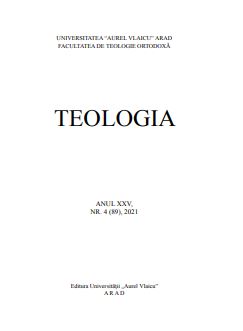The Public Communication’s Actions and the Religious Practice in the Christian Churches during the Pandemic
The Public Communication’s Actions and the Religious Practice in the Christian Churches during the Pandemic
Author(s): Vasile CreţuSubject(s): Christian Theology and Religion, Communication studies, Health and medicine and law, Sociology of Religion
Published by: Editura Universității Aurel Vlaicu
Keywords: COVID-19 pandemic; Christian Churches; public communication; virtual Eucharist; worship; solidarity;
Summary/Abstract: The COVID-19 pandemic represented an unprecedented event in the modern world, and its effects are still visible in the society. In this tremendously challenged context, the religious organizations and the cults had to deal with complex scenarios, and to quickly adapt themselves to the new reality, in order to ensure the continuity of the religious practice and services. The churches tried to find quick and effective solutions for countering the negative effects of this crisis on their activity. Despite the efforts made, at least on the first period of the pandemic, it was particularly difficult to identify solutions aiming at creating a good environment for the religious practice. Hence, public communication became vital and priests or other religious representatives had to stay in touch by all means with the people and to continue to offer them religious assistance, even if this assistance was provided using the digital tools which, for a significant number of churches, were unknown. Apart from this, a very big challenge for the Christian Churches was represented by the administration of the Eucharist. In Romania, as well as in almost all the Orthodox countries, receiving the Holy Eucharist by using the same spoon divided the public opinion, most of the people considering this practice as being extremely dangerous in the pandemic context. Thus, the Church had to find solutions for people not to consider the religious practices as a danger to their health. A completely new term emerged in the new context – the “virtual Eucharist”. At the same time, during this period, the Churches developed unprecedented means of communication and the new experience opened a lot of opportunities which, for sure, could be the basis for future practice after the pandemic and which defines the Church as a stable actor of the modern world. During these difficult times, the Church proved to be a place of solidarity and worship, and due to its actions, a lot of social actions were organized in order to help people cope with this period. The purpose of this article is to emphasise the actions initiated by the Churches, as well as the many challenges faced during this unprecedented crisis.
Journal: Teologia
- Issue Year: 90/2022
- Issue No: 1
- Page Range: 42-58
- Page Count: 17
- Language: English

